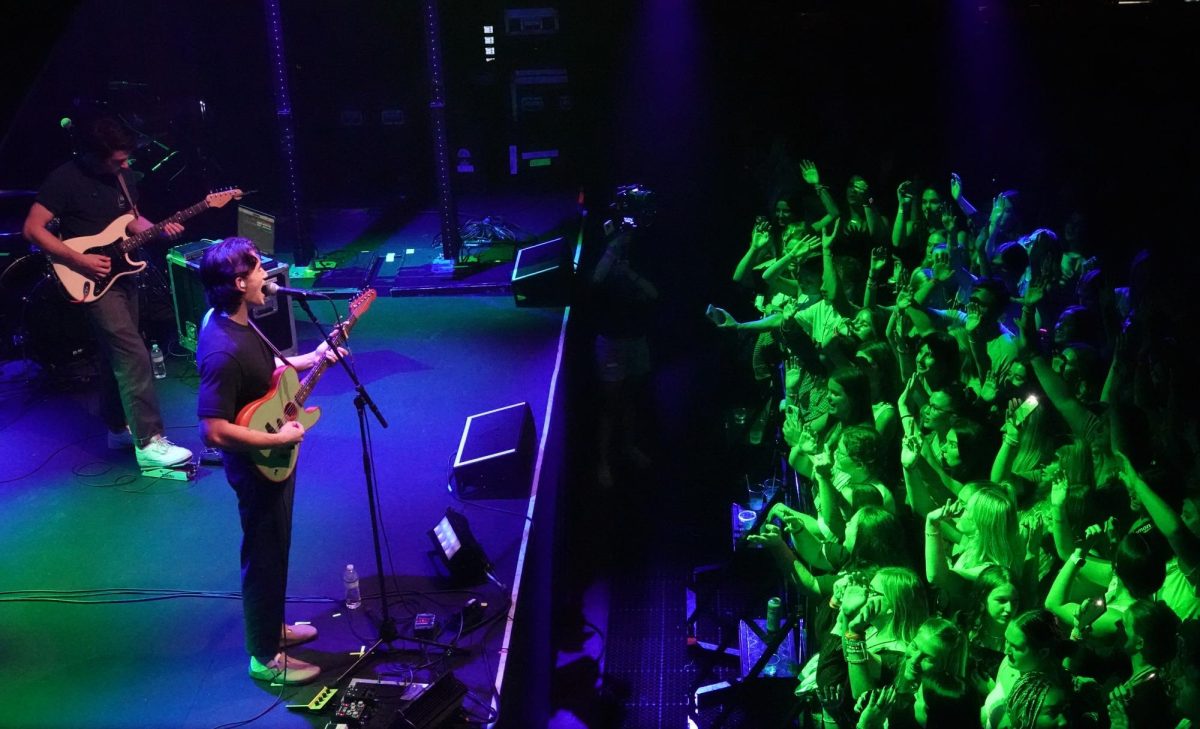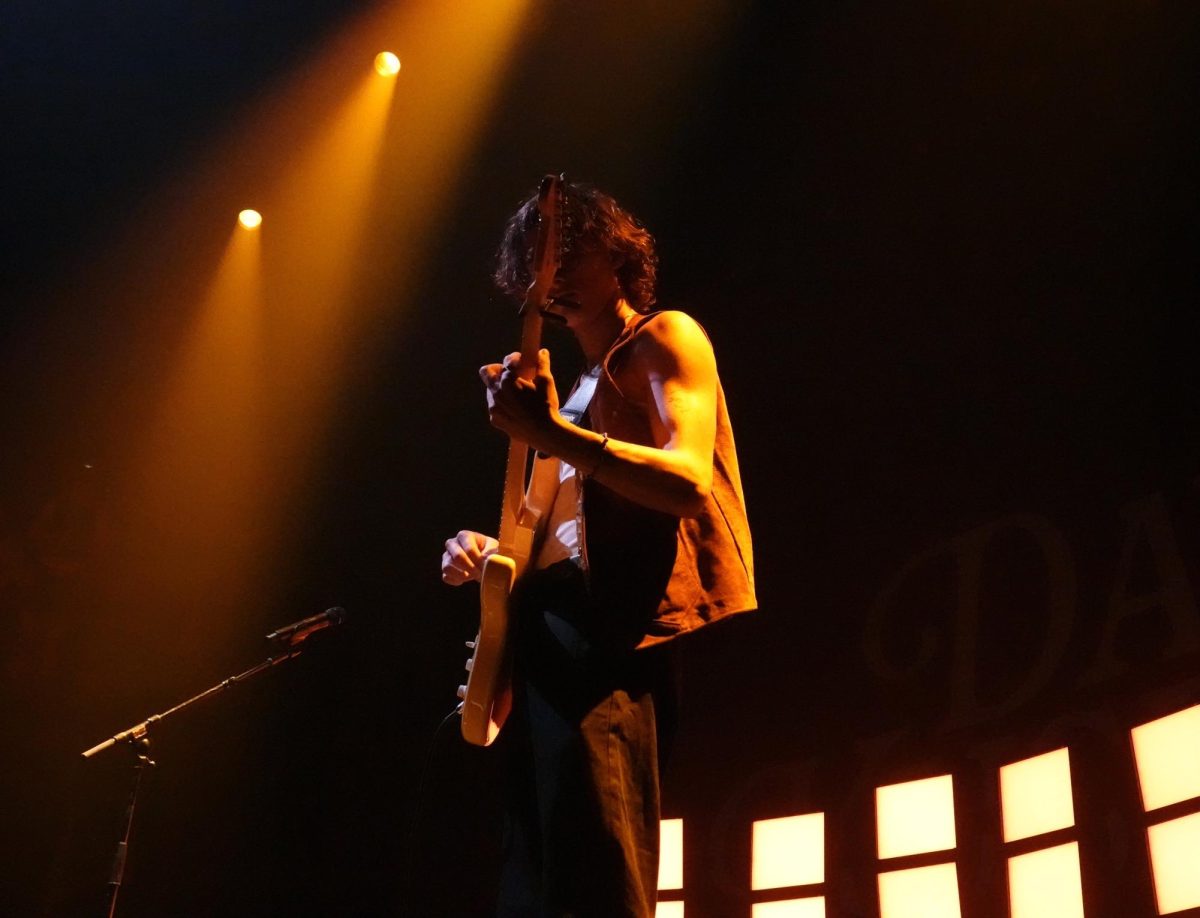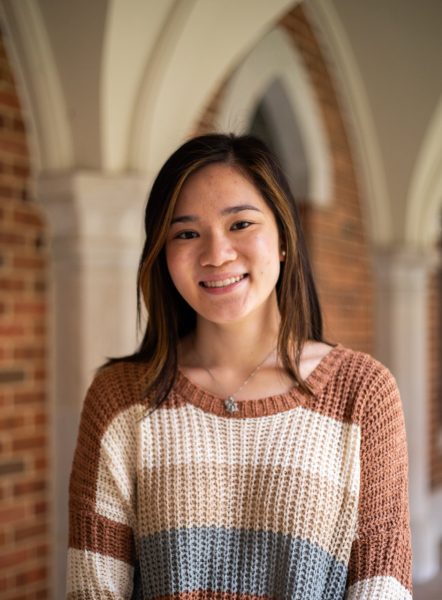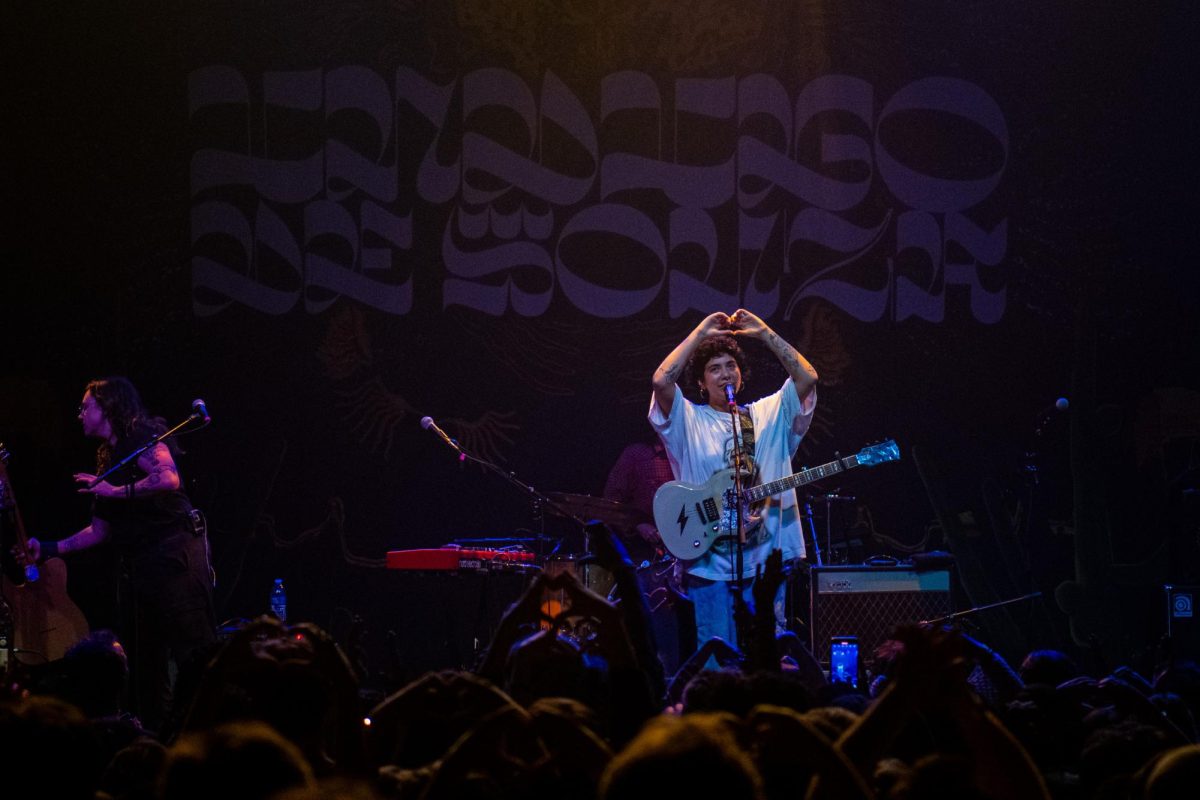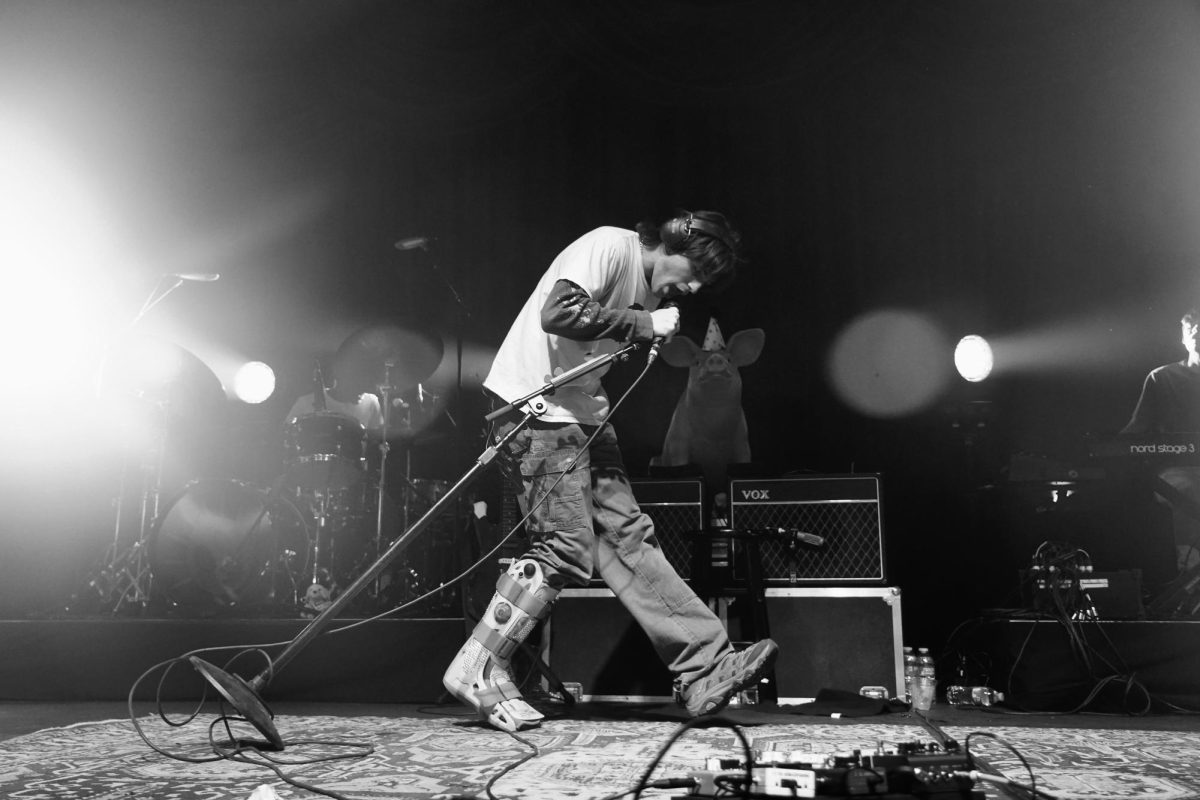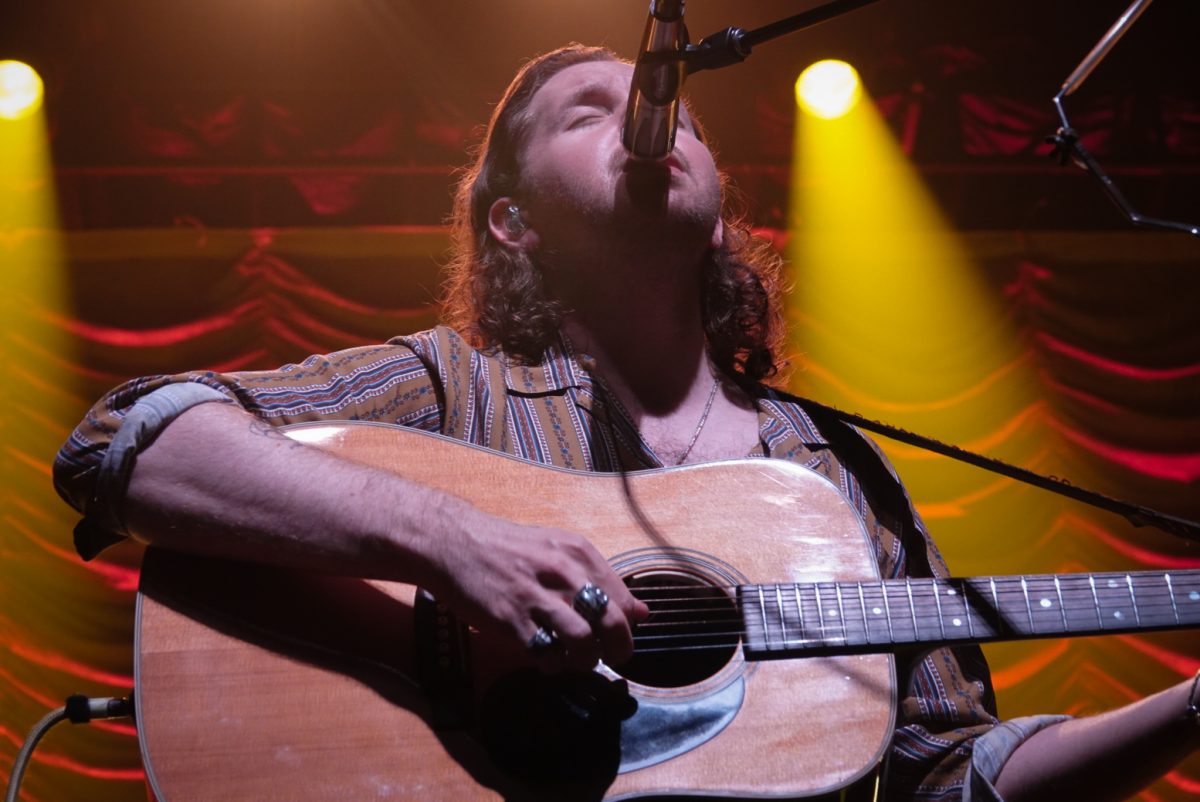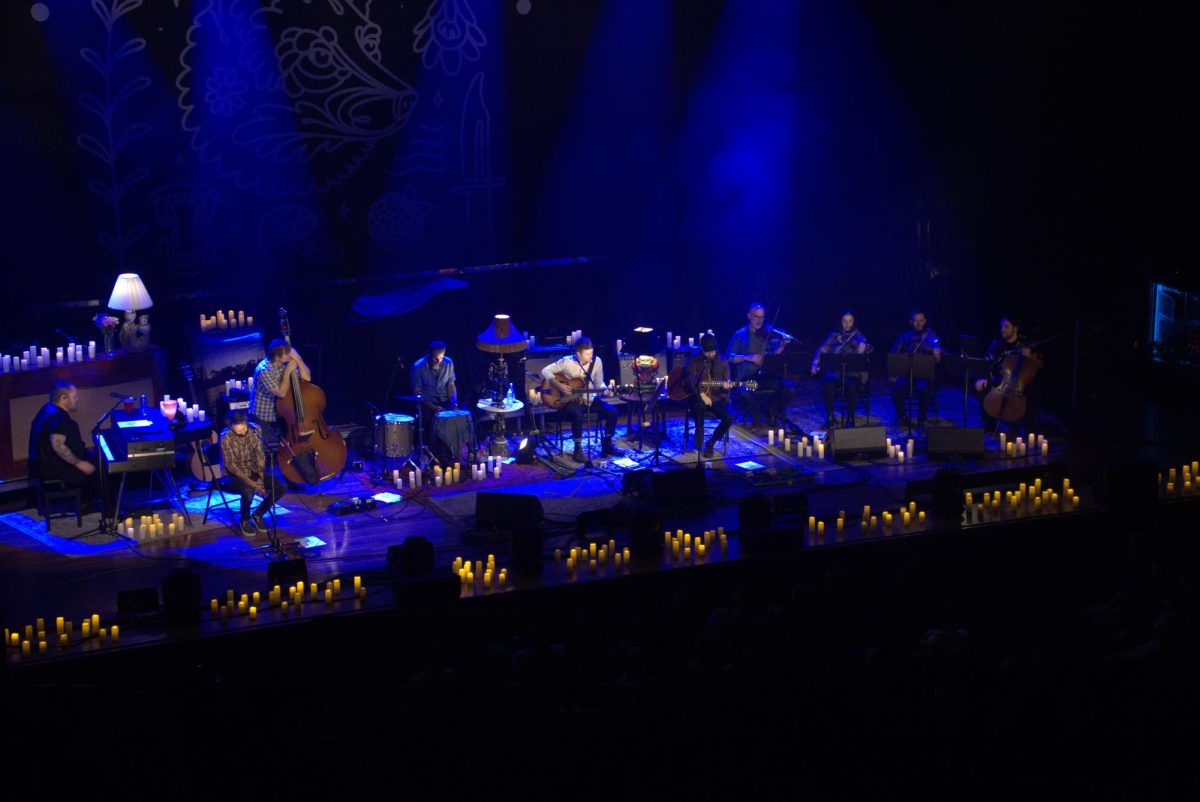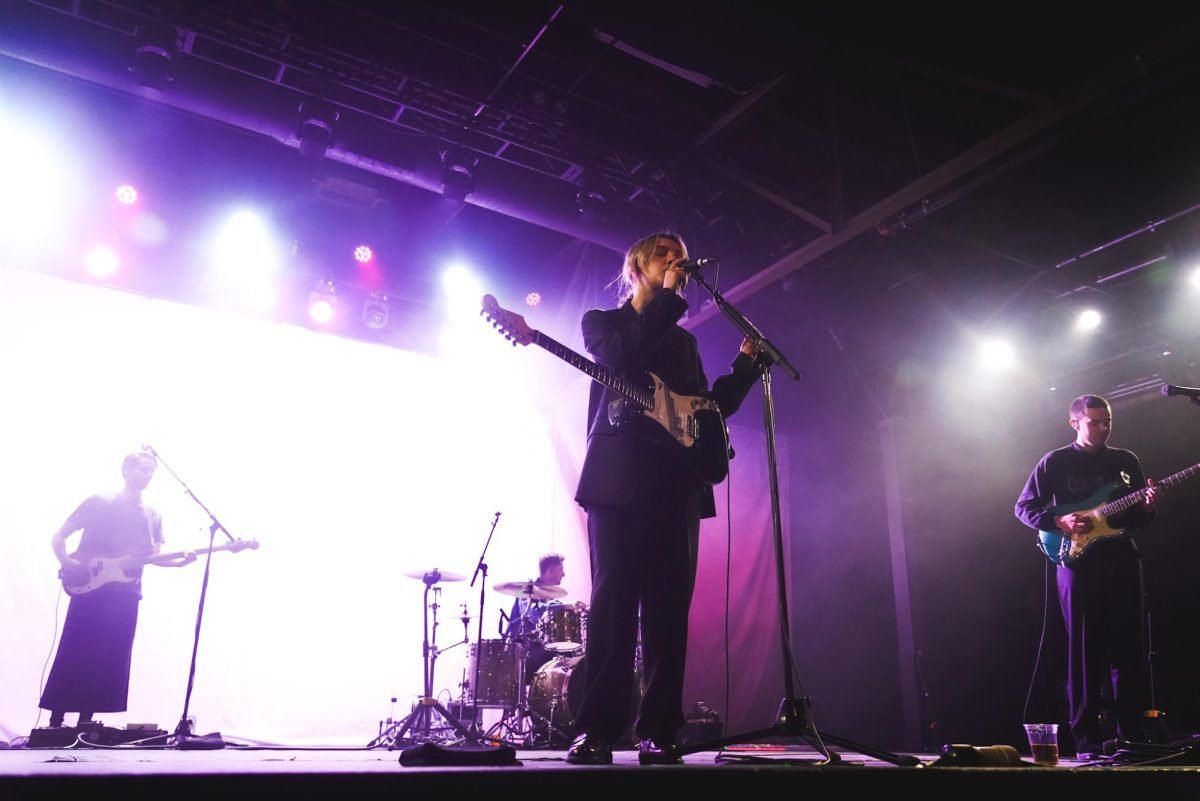What comes to mind when you think of a man with a guitar? In literature and history, this stereotype usually calls to mind images of a lowly musician on the side of a dusty road with his guitar case open, asking for tips. Nowadays, perhaps college students think of the typical peer that serenades the audience with the guitar at a tailgate during the school year or on the beach in the summer. With the rise of social media, artists like Chance Peña and David Kushner have placed a Gen Z spin on the guitarist archetype at their recent performance at Brooklyn Bowl on Sept. 5.
Both artists have gained much of their following on TikTok, discovered by users who love to witness budding young artists rise to fame. Peña’s page displays his awe and shock in having created music that has touched the hearts of so many people, while Kushner’s focuses on his latest endeavors and the venues he has performed at in his music career. However, the real reason these two artists appeal so much to Gen Z is because of how deeply their music resonates with people who have experienced the pains and joys of reaching adulthood in today’s world.
Peña took the stage first, with his rich voice easily filling the venue to the brim. His first vocal riff immediately elicited a cheer from the crowd as he and the accompanying guitarist grooved to the music. Next, Peña gifted us with an unreleased tune that he had begun about a year ago and recently rediscovered in his voice memos. When the audience applauded in excitement, Peña seemed as though he just couldn’t help but smile with overflowing pride. It was abundantly clear that both the performer and audience were thrilled to be exactly where they were in that moment.
The singer’s indie version of Kid Cudi’s “Pursuit of Happiness” intoxicated the crowd. Peña relished the way they ate it up and sang every word right along with him. After this electrifying cover, he proceeded to take the audience along with him on a journey through some of his teenage memories. Written on Peña’s 17th birthday, “Hey Lovely” transported every soul in the room back to fleeting but intense teenage romance. “Sleep Deprivation,” as the name implies, originated during a period of insomnia. Despite the frustration that often comes with a restless night, the song’s steady beat and Lumineers-esque introspective lyrics are somehow passionate, uplifting and melancholy all in one.
My personal favorite song of the night was a tune coming out on Sept. 21: “I Am Not Who I Was.” According to Peña, the song is about the inevitable change that comes with life, even when you are not ready for it. This song particularly hits home for residents of Nashville, a city that is known for attracting a huge influx of new citizens each year. For many other students and I, the song describes the immense growth we undergo as we encounter different people, places and experiences during our early college years. Peña asks over and over again, “Will you love me for who I am, not who I was?” Evidently, the rest of the fans loved the song too — I could have sworn I already heard people joining Peña in song as soon as the second chorus began.
Toward the end of his set, Peña finally played the song that many of his fans know him for: “In My Room.” Samples from the song have made their way into nostalgic TikTok sounds over the past couple years, and the ambient guitar slides were even more poignant in real life. After he finished, he agreed to take a fan’s BeReal, holding up a peace sign with his mouth agape in a genuine smile.
The themes of change and acceptance continued through David Kushner’s set, especially with his unreleased song “Georgia Rain.” In this song, Kushner reflects on a lost relationship and the experiences he shared with that person that are now simply a distant memory.
“The seasons change / We’re not the same / Your voice’ll whisper when I hear the Georgia rain,” Kushner sings.
The highlight of Kushner’s set, however, was his hit “Daylight,” which he teased on TikTok for video after video, building suspense and excitement until the song was released on streaming platforms on April 14. In the same way, Kushner held “Daylight” until the very end of the concert, despite several cries by fans waiting with bated breath hoping he would play it sooner. By the end of the song, the bass and the crowd’s singing were so deafening that Kushner’s own voice could not even be heard. Kushner proceeded to follow Peña’s example and take a BeReal from the stage. To conclude the show, Kushner swapped roles with the audience, who sang him a day-early but heartfelt “Happy Birthday.”
Though Peña and Kushner come from vastly different geographical and musical backgrounds, their styles complement each other magnificently. Peña’s slightly gentler, atmospheric genre was a perfect lead-in for Kushner’s more intense works, and both artfully manipulated their guitars and their voices to convey honest statements about change and their personal lives. Chance Peña and David Kushner, thank you for a frank yet therapeutic discussion about life — it’s been real.













